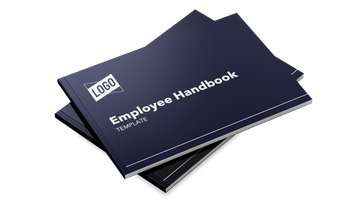Do You Own a Family Business? Here Are Common Labor Issues to Avoid

Table of contents
- 1.Nepotism in hiring and performance evaluations
- 2.Inadequate background checks when hiring family
- 3.Unclear expectations of family members who are workers
- 4.No exit strategy or succession plan in place
- 5.Noncompliance with employment laws
- 6.Run your family business in a professional way
Hiring family members has its perks. You know your family members to a certain extent and they likely support your company’s mission. Despite these potential benefits, things can go terribly wrong in a family-run business. There’s the risk of nepotism, inadequate background checks, unclear expectations, failure to develop exit strategies, and noncompliance with employment laws. Let’s take a look at these dangers.
Nepotism in hiring and performance evaluations
The Collins English Dictionary defines nepotism as “the unfair use of power in order to get jobs or other benefits for your family or friends.” It’s not hard, then, to see why family-run businesses are particularly prone to nepotism. The bonds of family may cause you to view your family members in a more protective or favorable light. However, non-family job applicants and employees may resent your preferential treatment toward your family members, and ultimately damage your reputation. For instance, they may warn potential applicants of your nepotistic practices or broadcast it online. When you engage in favoritism, it can stir up ill feelings in your employees, including family employees. For example, hiring or promoting your adult child over a more qualified relative can cause interpersonal conflict both inside and outside of work. Although nepotism may be illegal in the public sector, it is legal in the private sector. But that does not make it good business practice for private-sector employers. And although nepotism in and of itself does not constitute discrimination, it can lead to discrimination claims. This may happen if the offended individual also believes you discriminated against them based on their race, color, national origin, sex, or religion.
Nepotism can lead to discrimination claims
Family-run businesses are especially vulnerable to nepotism, which should be avoided at all costs. You also need to watch out for family members who expect you to hire or promote them solely because of their familial status. It’s important to hire and promote people based on their qualifications, not according to your personal relationship with them.
Inadequate background checks when hiring family
You think you know your family members well. But you might not know them as well as you think. For example, they may have secrets that, if brought to light, can jeopardize your business. For these reasons, it’s crucial that you perform complete background checks on all family and non-family employees. Depending on your industry and location, special background-check rules may apply. For example, the state may have stringent background-check laws for caregivers in family childcare homes. According to the Equal Employment Opportunity Commission (EEOC), employers must treat all employees fairly when conducting background checks. The EEOC says, “It's illegal to check the background of applicants and employees when that decision is based on a person's race, national origin, color, sex, religion, disability, genetic information, (including family medical history), or age (40 or older).” The EEOC adds, “For example, asking only people of a certain race about their financial histories or criminal records is evidence of discrimination.” If you’re hiring minors, take note of statutory requirements for conducting background checks on minors, including any restrictions.
Unclear expectations of family members who are workers
Without clear expectations, things can quickly spiral out of control in a family-owned business. For instance, family employees may believe they can do whatever they want just because they’re related to the business owner. They may show up for work late, leave early without permission, or assume authority not assigned to them, such as disciplining or firing other employees. They may flout the dress code or harassment policy and engage in other behaviors that feed a toxic work culture. To prevent these outcomes:
- Develop thorough job descriptions that include essential and nonessential functions for each position.
- Communicate your expectations for the job to the employee, family member or not.
- Don’t assume that family employees automatically know how things should be done at your workplace, or that they will require little training.
- Provide training based on the needs of the position and the employee’s competencies.
- Create an employee handbook, outlining your mission, policies, procedures, and code of conduct.
- Distribute the employee handbook to all employees, including family members. Ask each employee to sign an acknowledgement of receipt.
- Determine whether you need to implement an office romance policy. You might need to do this if your staff includes spouses or intimate partners.
- Establish disciplinary procedures for unsatisfactory performance.
- Enforce the rules consistently across all employees. No one should get a pass just because they’re a family member.
No exit strategy or succession plan in place
Do not presume that your family members will never leave your company solely because they are related to you. Even family members can lose interest in their job, or jump ship when you least expect it. Even if they stay the course, at some point, their employment at your company will end.
Make sure you have exit strategies for all family and non-family positions.
You don’t want to wait until the last minute to decide who will take over critical roles when the respective employees leave. Also, without exit strategies, intense family squabbles could erupt over who should fill leadership roles in the future. Therefore, make sure you have exit strategies for all family and non-family positions. Incorporate the exit strategies into your succession plan. For more information on succession planning, see “What Is Succession Planning, and How Can It Benefit Employers?”
Noncompliance with employment laws
Overlooking or dismissing employment laws is a common pitfall of family-owned businesses. However, employment laws apply to all employers, including those that hire family members. Some employment laws that family-owned businesses should consider:
- Fair Labor Standards Act (FLSA). This is a federal law that governs minimum wage, overtime, child labor, and record keeping.
- Title VII of the Civil Rights Act. This is a federal law that protects job applicants and employees from discrimination on the basis of race, color, national origin, sex, and religion.
- State and local wage and hour laws. Typically, these laws include minimum wage, overtime, child labor, and record keeping provisions.
- Federal, state, and local employment tax laws.
Family-owned businesses are often susceptible to specific acts of noncompliance. For example, they may believe that they can assign whatever jobs or work hours they want to their minor children. But the FLSA has restrictions for minors working in family-owned businesses. It’s also a mistake to think that you can pay family members as little as you want. Your family employees are likely covered by minimum wage and overtime pay laws. In addition, steer clear of making “under the table” payments to escape your tax obligations. If you have family employees, you must adhere to tax withholding and reporting laws. Note that the Internal Revenue Service has specific tax rules for businesses that hire family members.
Run your family business in a professional way
This is the key to avoiding labor issues like nepotism, inadequate background checks, unclear expectations, having no exit strategies, and violating employment laws.

Grace Ferguson
Table of contents
- 1.Nepotism in hiring and performance evaluations
- 2.Inadequate background checks when hiring family
- 3.Unclear expectations of family members who are workers
- 4.No exit strategy or succession plan in place
- 5.Noncompliance with employment laws
- 6.Run your family business in a professional way






